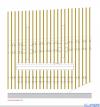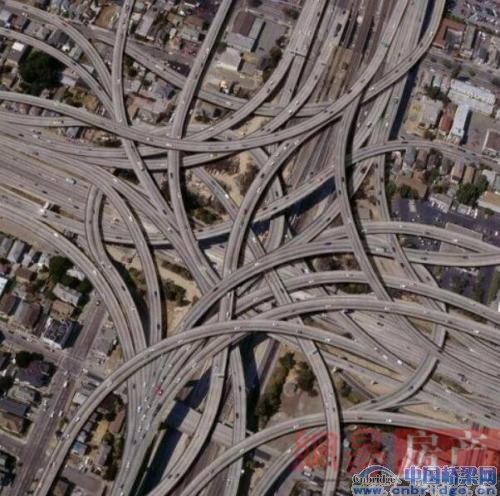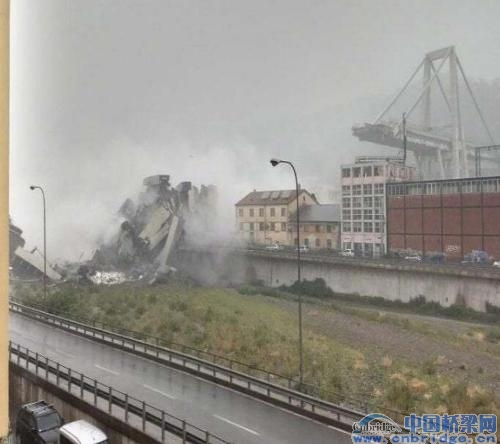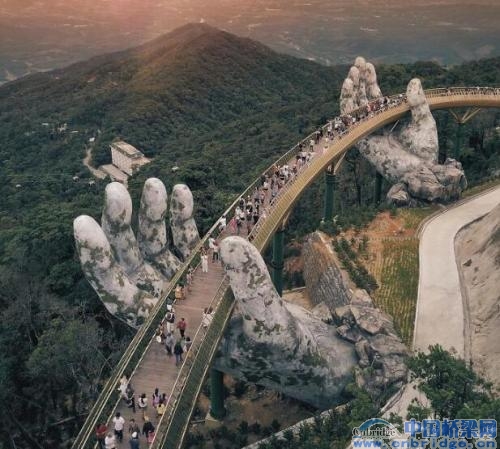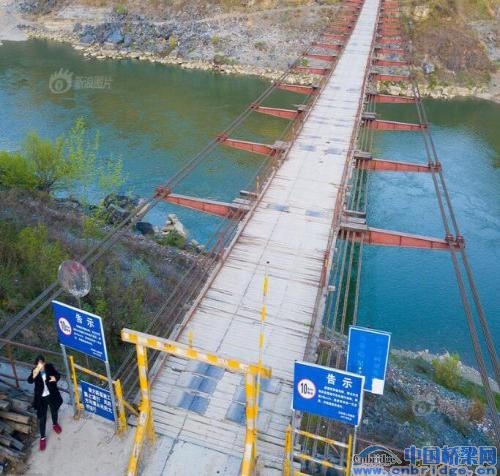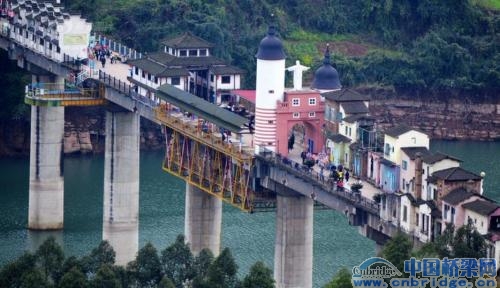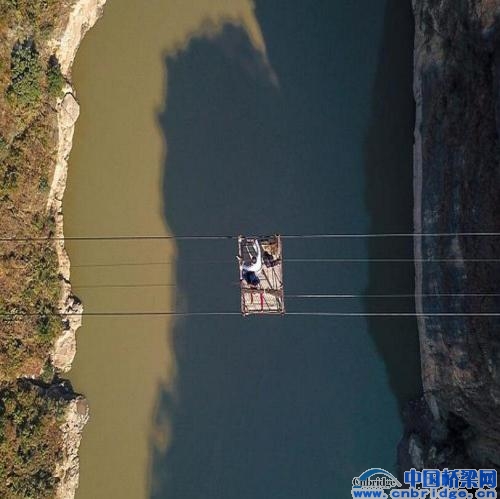荷蘭2015年新建了一座為行人和蝙蝠而設(shè)計(jì)的橋。這座蝙蝠橋橫跨荷蘭怪獸鎮(zhèn)Vlotwatering河。這個(gè)主意是由阿姆斯特丹市外運(yùn)營工作室的Next建筑公司提出的,Next設(shè)計(jì)了一座長約48.8米的橋,該橋在滿足行人和騎自行車的人的需要的同時(shí),還能以三種不同的方式為蝙蝠提供庇護(hù)之所。
從上面或者路面看,Vlotwatering橋是一座由紅磚和木頭做成的彎曲且雅致的建筑。但靠近看,你會(huì)發(fā)現(xiàn)它承擔(dān)雙重任務(wù)的奇妙所在:這些板條之間的寬度使得蝙蝠能輕易進(jìn)入。在橋內(nèi),蝙蝠能找到三種類型的棲息地:寒冷的冬天它們能躲在封閉的區(qū)域,春天它們能藏在縫隙里,夏天它們能倒掛在橋下。封閉的區(qū)域由較厚的混凝土板做成。
負(fù)責(zé)Next項(xiàng)目的合伙人Bart Reuser表示這個(gè)想法來自點(diǎn)綴在海岸線上的二戰(zhàn)時(shí)期建立的地堡。它們那巨大的混凝土墻能很好地隔絕冷空氣,蝙蝠能在里面休養(yǎng)生息。Reuser將它們比作一座具有歷史意義的教堂上的厚磚塊。他說:“夏天教堂里很涼爽,冬天里面很溫暖——這并不是因?yàn)樗患訜崃?,而是因?yàn)樗墙Y(jié)實(shí)的墻。”
蝙蝠傾向于在頂樓定居,當(dāng)熱氣從地下傳過來時(shí),頂樓會(huì)變得非常溫暖。但由于荷蘭政府加強(qiáng)節(jié)能的政策,這種情況變得越來越少,蝙蝠能棲息的地方也隨之變少。為了確保怪獸鎮(zhèn)的蝙蝠能夠得到合適的避難所,Reuser和他的團(tuán)隊(duì)咨詢了荷蘭哺乳動(dòng)物協(xié)會(huì)的蝙蝠專家Herman Limpens。他提供的意見包括加寬板條之間的距離,在確保蝙蝠出入同時(shí)確保板條的寬度能夠防止掠食者侵入;他還要求混凝土的平均厚度為74.93厘米。
如果你覺得花費(fèi)這么多時(shí)間和金錢來保護(hù)這種恐怖的夜行動(dòng)物不劃算,那么你應(yīng)該想想:蝙蝠會(huì)吃掉大量昆蟲,其中有些昆蟲對莊稼、動(dòng)物和人類有害。如果沒有安全的地方棲息,蝙蝠就沒辦法生存和定居。如果蝙蝠數(shù)量太少那么你就有可能受到害蟲的騷擾。為蝙蝠留下生存空間并不僅僅是尊重動(dòng)物而已,當(dāng)?shù)鼐用褚部梢允芤?。因此怪獸鎮(zhèn)選擇在橋里給蝙蝠留下生存空間。
德州奧斯汀的議會(huì)大道橋也是這種生態(tài)基礎(chǔ)建設(shè)的一個(gè)著名案例。它是約150萬只墨西哥無尾蝙蝠的棲息地,國際蝙蝠保護(hù)組織估計(jì)它們每晚要吃4536-9072公斤重的昆蟲。沒錯(cuò),這個(gè)對蝙蝠友好的橋梁最終能給人類回報(bào),它吃掉的蟲子能以噸計(jì)。
建筑師:NEXT architects
地點(diǎn):荷蘭,Monster2681
項(xiàng)目年份:2015
攝影:Raymond Rutting, Courtesy of NEXT architects
聯(lián)系人:Ir. B. Reuser
結(jié)構(gòu)顧問:Pieters Bouwtechniek Haarlem (Frank Meijer)
費(fèi)用顧問:Laan Bouwkostenadvies (Theo Laan)
生態(tài)顧問:Zoogdiervereniging (Herman Limpens)
承包商:Kroes aannemingsbedrijf B.V.
設(shè)計(jì)團(tuán)隊(duì):Bart Reuser, Marijn Schenk, Michel Schreinemachers, Jurriaan Hillerstr?m, Sylvia Hendriks, Luuc Sonke, Anne Hilgers, Anna Korzeniowska
The Vlotwateringbrug or popularly ‘batbridge’ has opened for the public in the beginning of October. The bridge has three specific components that provide roost for several bat species. At the north side the abutment functions as a winter stay. The deck and the brick balustrade accommodate stays for bats during the summer.
The bridge design is intended to constitute the ideal habitat for various species of bats, aiming to grow a large colony. “A textbook example of how a functional object can at the same time serve nature,” says bat-expert Marcel Schillemans from the Mammal Society.
The project is located along a flight route of several bat species. To optimize the suitability of the bridge for bats, the structure is made out of concrete. The mass of the concrete provides a stable and pleasant climate. The underside of the bridge is provided with entrance slots. The openings have a rough finish for grip. The slots are part of a pattern of grooves in the concrete arch. Clever use is made of the structural space in the cross section to implement the roosts.
Crossing the Vlotwatering the new bridge winds between two existing parcels and marks the entrance of the Poelzone. At the highest point, the bridge makes a turn for a clear view of the area. The wooden lamellas provide openness to the natural banks along the water. With a length of 25 meters the concrete arch spans the entire Vlotwatering. The S-shaped deck is supported with a pressure arc that slants under the bridge.
The bat bridge becomes part of the Poelzone, an elongated area in the Westland between the existing centres of ’ s- Gravenzande , Naaldwijk and Monster. Along the waterway a new green recreational zone with natural banks and spawn sites for fish will be realized. The landscape design by LOLA Landscape is made to strengthen the existing green and ecological connections in which natural and recreational values complement each other.


















